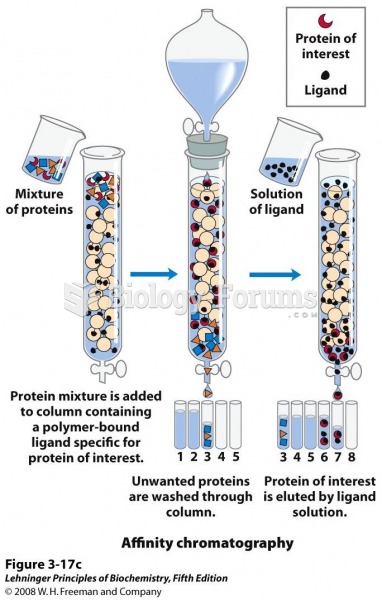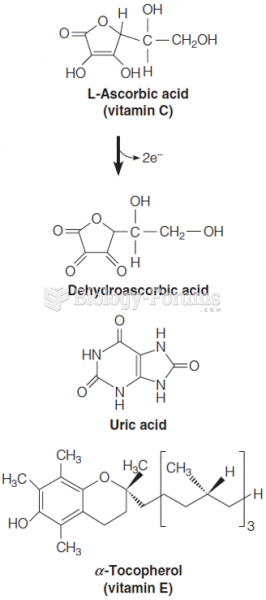|
|
|
The use of salicylates dates back 2,500 years to Hippocrates’s recommendation of willow bark (from which a salicylate is derived) as an aid to the pains of childbirth. However, overdosage of salicylates can harm body fluids, electrolytes, the CNS, the GI tract, the ears, the lungs, the blood, the liver, and the kidneys and cause coma or death.
Although puberty usually occurs in the early teenage years, the world's youngest parents were two Chinese children who had their first baby when they were 8 and 9 years of age.
Drying your hands with a paper towel will reduce the bacterial count on your hands by 45–60%.
After a vasectomy, it takes about 12 ejaculations to clear out sperm that were already beyond the blocked area.
People with high total cholesterol have about two times the risk for heart disease as people with ideal levels.







